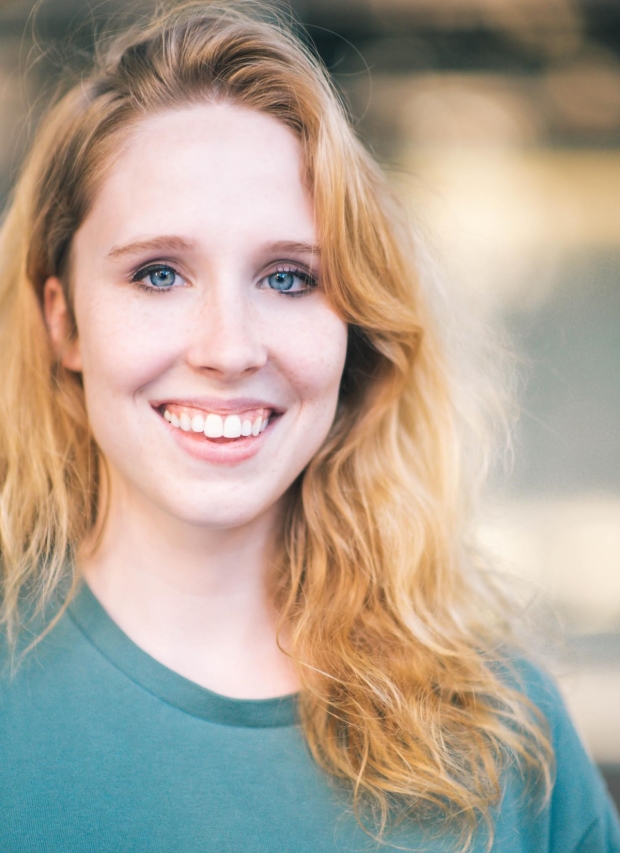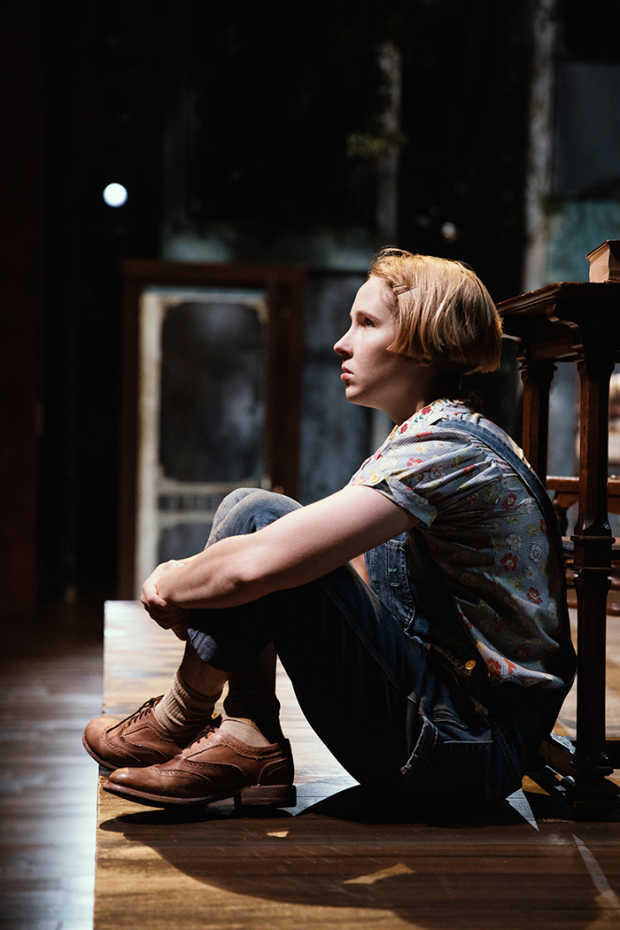Introducing Nina Grollman, Broadway's New Scout Finch
Grollman has assumed Celia Keenan-Bolger’s Tony-winning role in ”To Kill a Mockingbird” at the Shubert Theatre.
To Kill a Mockingbird graduated its first cast of actors at the beginning of November, passing to a whole new ensemble the charge of performing Aaron Sorkin's stage adaptation of Harper Lee's classic American novel.
The production, directed by Bartlett Sher, led Celia Keenan-Bolger to her first Tony win for her performance as Scout Finch, the 8-year-old tomboy manifested as an adult woman looking back at one transformative summer in her hometown of Maycomb, Alabama. Keenan-Bolger, who helped shape her role through the play's earliest workshops, leaves big shoes for the next Scout to fill — and the actor taking on that sizable challenge is Nina Grollman.
Since graduating from Juilliard in 2017, Grollman has been gliding under the radar of New York theater (she made her Broadway debut as Margie in the 2018 revival of The Iceman Cometh, starring Denzel Washington). You could call Scout her most thorough introduction to New York audiences, considering the character rarely leaves the stage. So here's your chance to get to know her a little better as a person before you meet her as an artist at the Shubert Theatre.

(photo provided by DKC/O&M)
This is a breakout role for you. What has your career path been up until this point?
I booked my first job at the Public Theater with the Mobile Unit Winter's Tale. That was one of the coolest theatrical experiences I've ever had. We'd tour around the five boroughs at community centers, shelters, prisons, and perform Shakespeare. It was such a great first job because it really instilled that stories are important, and audiences that don't get to see theater got to see that. So that was really special. I did Iceman Cometh and The Hard Problem right after, where audiences are very different. And now I'm here! It's crazy. Life is weird.
Had you seen the show before auditioning for Scout?
I hadn't seen the play. So I just asked a bunch of dumb questions and Bart [Sher] was patient with me. We just worked the scenes in a really nice way that isn't often the case with a high-pressure audition situation. I usually find myself getting really tense, and it's hard to take notes, but with Bart, he poses things in a very digestible way.
I'm assuming you went to see the play after you got the part. What were your initial impressions and what excited you about how Aaron Sorkin theatricalized Scout's character?
First of all, I was blown away by Celia [Keenan-Bolger] and her performance. And I was shocked that Scout is onstage pretty much the entire time. Even the courtroom scenes, she's watching and taking everything in. You really see the play through her, which is similar to how the narrative in the book operates. So I really appreciated that.
There's just a lot of really fun, physical stuff that happens that I was excited about. And as I did with the book, seeing it staged, I immediately identified with Scout. There's something about this role that I just get very easily. It's not every role that you can inherently understand on a deeper level. So that was also very exciting to me seeing it for the first time. I feel like I get to be my 8-year-old self, and that's just so nice. It feels like home.

(© Julieta Cervantes)
What is it about Scout that you connect with so easily?
She's just everything. She's got so much moxie and heart, and in terms of gender expression, she and I were very similar. I was very androgynous as a kid, and I remember really identifying with that when I read it, and loving those sections of the book where she has to be a lady and go to these tea parties with Aunt Alexandra. You've gotta love Scout.
Did you get any words of wisdom from Celia Keenan-Bolger before you started your run?
Yeah, we had a drink and she gave me a lot of insight about her discoveries and the development of the role, which was very helpful to know. She fought for a lot of essential things that are now in the play. They weren't just there when they started workshopping. She really knows this part and understands it very deeply. So we had fun talking about that. I didn't know what to expect but she's the nicest person on planet Earth.
What were some of those elements of Scout that she fought for in the play?
There are a lot of conversations between Jem and Atticus about what it means to be a man, and Scout is just there hearing all of this. Celia really fought for how she deals with hearing this stuff and there were some lovely things that came out of that. For example, she has a little speech introducing Calpurnia, who's the only prominent female role model for Scout in the piece. Their relationship — she fought for that. And I think just the importance of Scout in the narrative — she really brought that home. At the end of the day, the story is not just these events, it's a child trying to understand these events. I think she did a wonderful job of driving home the importance of that to the team.
Which have been your favorite moments to perform in the play so far?
It's corny to say it, but the whole thing. I think the whole arc is just so exciting. The first act is a little lighter. There's a lot of fun, physical kid stuff and a lot of running around that I get to do. And then in the second act, everything starts to get tragic. It's like you're growing up a little every night. And that is sad but quite a cathartic thing to go through.







